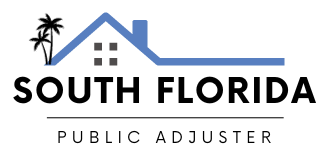
Homeowners insurance is crucial for protecting your property from various risks, but understanding what is and isn’t covered can be complex, especially in a state like Florida with its unique risk factors. This blog will clarify standard coverage, common exclusions, and how you can address coverage gaps in Florida.
Common Exclusions in Florida Homeowners Insurance
While homeowners insurance provides essential coverage, there are some common exclusions, particularly in high-risk areas like Florida:
- Flood Damage: Standard homeowners policies typically do not cover damage caused by flooding. In Florida, where heavy rains and hurricanes are frequent, this can be a significant coverage gap.
- Sinkholes: Florida’s geological conditions make sinkholes a common risk. Many standard policies exclude damage caused by sinkholes, though some may offer coverage through specific endorsements or riders.
- Hurricane Damage: While some policies include hurricane coverage, many have separate deductibles or restrictions for hurricane-related damage. It’s important to check the specifics of your policy regarding wind and storm damage.
- Maintenance Issues: Damage resulting from lack of maintenance or wear and tear is usually not covered. This includes issues like roof leaks due to poor maintenance.
- Personal Liability Exclusions: Certain liability claims, such as those arising from business activities conducted on the property, may be excluded or limited.
Differences in Coverage Between Florida and OtherStates
Homeowners insurance in Florida often differs from policies in other states due to the unique risks:
- Hurricane and Windstorm Coverage: Florida policies frequently include specific clauses for hurricane and windstorm damage, reflecting the higher risk of these events compared to other states.
- Flood Insurance: Given Florida’s susceptibility to flooding, residents are encouraged to purchase separate flood insurance, whereas in some other states, flood coverage might be included or more readily available.
- Sinkhole Coverage: Due to the prevalence of sinkholes in Florida, some insurers offer specialized sinkhole coverage that may not be commonly available in other regions.
- Home Codes and Building Standards: Florida has stringent building codes due to frequent hurricanes, which can impact the coverage and premiums for home insurance compared to other states with different risk profiles.
How to Fill Coverage Gaps
To ensure comprehensive protection, consider these options for filling coverage gaps:
- Flood Insurance: Purchase a separate flood insurance policy through the National Flood Insurance Program (NFIP) or private insurers. This coverage will protect against flood damage that isn’t included in standard homeowners insurance.
- Sinkhole Insurance: If you live in an area prone to sinkholes, check with your insurer about adding sinkhole coverage or seek policies that include this protection.
- Umbrella Insurance: For additional liability protection beyond standard homeowners coverage, consider an umbrella policy. This can cover personal liability claims not included in your base policy.
- Endorsements and Riders: Review your policy for endorsements or riders that can enhance coverage for specific risks or provide additional protections tailored to Florida’s unique needs.
Tips for Understanding Policy Limits and Endorsements
- Review Policy Details: Carefully read your policy to understand coverage limits, deductibles, and exclusions. Pay close attention to specific terms related to high-risk events like hurricanes.
- Ask Questions: Don’t hesitate to ask your insurance agent about anything you don’t understand. Ensure you’re clear on what is covered and any limitations.
- Consider Higher Coverage Limits: If your home or property is valuable or in a high-risk area, consider increasing coverage limits to ensure adequate protection.
- Update Your Policy Regularly: As risks and property values change, review and update your policy to reflect current conditions and needs.
Understanding what homeowners insurance covers in Florida is essential for protecting your property and managing risks. By being aware of common exclusions, differences in coverage, and how to address coverage gaps, you can make informed decisions and ensure comprehensive protection for your home.
Interactive Element: Coverage Check Quiz
You’ve recently purchased a new home in Florida and are reviewing your homeowner’s insurance policy. You’re concerned about potential coverage gaps. Which of the following steps is the best way to ensure you’re fully protected?
- Assume your policy covers everything since it’s a standard homeowners policy.
- Only focus on the coverage of common risks like fire and theft.
- Review the exclusions listed in your policy and consider adding coverage for specific risks like floods or sinkholes.
Correct Answer: C) Review the exclusions listed in your policy and consider adding coverage for specific risks like floods or sinkholes.
In Florida, standard policies often exclude certain risks, such as floods and sinkholes. By understanding these exclusions and adding appropriate coverage, you ensure your new home is adequately protected against Florida-specific risks.
Have questions about your homeowner’s insurance coverage or need help filling coverage gaps? Contact ClaimPros today for expert guidance and assistance in finding the right coverage for your Florida property.
